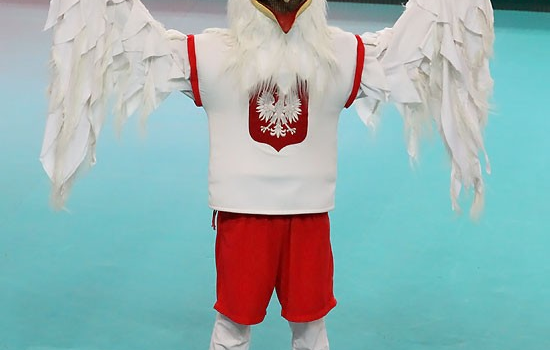
Independence Day
Tomorrow (November 11) will be celebrated in Poland as the centenary of independence. There are a bunch of reasons why this is problematic from a historian’s perspective, but I don’t want to be pedantic.
Ok, yes I do.
The emphasis on 1918 itself implies that there is some sort of sharp division between a time before (the “time of captivity” [czas niewoli], as it is often called) and the time after (independence). The distinction was by no means so sharp, and the eras on each side were by no means homogeneous.
Most obviously, in Galicia, Polish-speaking elites had been in charge for half a century, much to the consternation of Ukrainian national activists and peasants of all ethnicities. What changed after 1918 was the linkage between Kraków and Warsaw and Poznan, not the on-the-ground power dynamics in Galicia itself.
Moreover, the “time of captivity” was extraordinarily heterogeneous, and only a nationalist ideology manages to blend it into a bitter smoothie of oppression. There were clear spatial and chronological variations in the degree to which Poles were oppressed. For example, Russian efforts to suppress the Polish language were instituted only after the 1863 uprising, and they were applied inconsistently for a while before being abandoned altogether. In some contexts that russification was severe and painful, particularly for the educational system in the 1870s and 1880s. But commerce, publishing, journalism, theater, and most of the broadly defined “public sphere” was never russified at all. In Germany the discrimination against the Polish language was much more systematic and effective, but here too we are dealing with at most a few decades in the late 19th century.
For much of the “time of captivity,” most of the Polish peasants were either serfs or only nominally free sharecroppers. Since the national movement was dominated by the nobles, the emancipatory potential of that movement for the peasants was always in doubt. To be sure, the left wing of the nationalist movement wanted to put an end to serfdom and (later) enact meaningful land reform, but they repeatedly came up against an irresolvable dilemma: the more they pushed their social agenda, the less backing they got from their natural base of support among the nobles, yet if they abandoned the serfs altogether they could never create a mass movement. This single factor was probably the most important reason why the national movement could never succeed, until Russia, Germany, and Austria-Hungary collapsed of their own accord.
Moving to the date of November 11 itself, what exactly are we celebrating? Several independent Polands had been declared in the weeks leading up to that date, most significantly in Lublin during the night from November 6-7, 1918. The creation then of the “Provisional People’s Government of the Polish Republic” embodied both the revolutionary mood of that tumultuous year, alongside the goal of national independence. It included members from all the major centrist and leftist political parties, excluding only a Bolshevik-backed group to the left and the antisemitic National Democratic Party on the right. For years to come, many would mark the 7th as the date of Polish independence, and it was only Józef Piłsudski’s seizure of power in 1926 that began the process of solidifying the 11th as the moment of commemoration. In fact, only in 1937 did the 11th became an official national holiday. Ironically, the specific event it marks is the transfer of power from the three men who constituted the German-appointed “Regency Council” to Piłsudski, who then claimed for himself the title of “Commander in Chief” [Naczelny Wódz]. One could say, therefore, that November 11 marks the date when two aristocrats and an archbishop gave full authority to a soldier, thereby scuttling the efforts of a broad coalition of center and center-left political parties.
Finally, if we look forward from 1918, we have to wonder whetherthis is truly a “centenary” of anything. The polity that emerged in 1918 onlylasted for two decades, followed by five years of occupation and war, followedby a new country, the Polish People’s Republic (Polska Rzeczypospolita Ludowa, or PRL), which renounced any ties tothe interwar Second Republic. The PRL came to an end in 1989, though supportersof the current Polish government have insisted that genuine independence onlycame to Poland in 2015, with their own rise to power. So PiS supporters are celebrating 24 years ofindependence spread across the past century. those on the center-right who associate with the Third Republic arecelebrating 50 years of independence, insofar as they don’t recognize the PRLas legitimate. By the most capacious understanding, including the communist era,we are celebrating just under 95 years of various forms of independence.
Of course I’m being flippant, but there’s a serious point here. Celebrating a centenary of independence on November 11, 2018, is not an ideologically neutral commemoration. It implies recognizing that 1918 marked a clear division between an oppressive time before and a period of liberty after. That’s certainly true for some (for example, women got the vote in 1918, albeit not on November 11), but not really for others (emancipation from serfdom meant vastly more in practical terms than a shift in political power to Warsaw from Petersburg, Kraków, and Berlin). Moreover, it implies a deliberate forgetting of the political divisions of 1918 itself, erasing some viable (at the time) alternatives in favor of the political camp around Józef Piłsudski. Finally, it flattens the period since 1918 in a way that no one truly believes.
So with that in mind, Happy Independence Day!